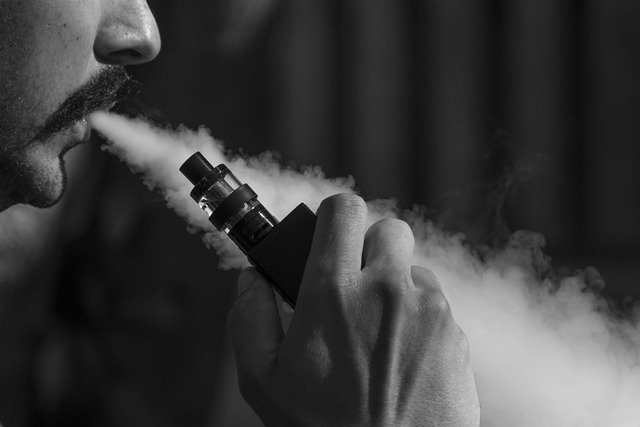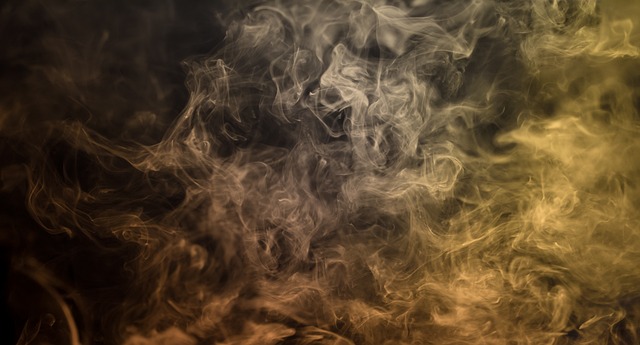Smoking After Tooth Extraction: What If You Smoke?
Imagine this scenario: you’ve just undergone a tooth extraction, and as you sit in the dentist’s chair, relief washes over you. The worst is over, or so you think. But what if you’re a smoker? Suddenly, a wave of uncertainty hits you. Can you smoke after a tooth extraction? Will it harm the healing process? In this article, we aim to provide you with a confident, knowledgeable, and neutral perspective on the topic. We will delve into the potential consequences of smoking after tooth extraction, shedding light on what you need to know to make an informed decision. So, if you’re curious about the impact smoking can have on your post-extraction recovery, let’s explore the facts together.
1. Understanding the Impact: Smoking and Tooth Extraction
Smoking has a significant impact on tooth extraction procedures and post-surgical healing. Understanding this impact is crucial for both smokers and dental professionals. Here are some key points to consider:
1. Delayed Healing: Smoking impairs blood flow and oxygen delivery to the surgical site, resulting in delayed healing after tooth extraction. This can lead to a prolonged recovery period and an increased risk of complications such as infection.
2. Increased Infection Risk: Smoking weakens the immune system and deters the body’s natural ability to fight off infections. As a result, smokers who undergo tooth extraction are more susceptible to developing post-operative infections, which can further hinder the healing process.
3. Dry Socket: Smokers have a higher chance of experiencing dry socket, a painful condition where the blood clot that forms after tooth extraction becomes dislodged or dissolves prematurely. This can cause severe pain and delay the healing process.
4. Compromised Bone Grafting: For patients requiring bone grafting procedures in preparation for dental implants, smoking can compromise the success of the graft. Smoking reduces blood flow to the graft site, hindering the integration of the graft material with the jawbone.
5. Overall Oral Health: It is important to note that the negative impact of smoking extends beyond tooth extraction. Smoking is a known risk factor for gum disease, oral cancer, and other oral health problems. Quitting smoking not only improves the outcome of tooth extraction but also promotes better overall oral health.

2. Unveiling the Risks: Smoking After Tooth Extraction
Smoking after tooth extraction poses several risks that can impede your healing process and overall oral health. Here are the key dangers to be aware of:
1. Delayed healing: Smoking restricts blood flow to the gums, which is crucial for proper healing after tooth extraction. This can result in a prolonged recovery period, increased pain, and a higher risk of developing complications such as dry socket.
2. Increased infection risk: Smoking weakens the immune system, making you more susceptible to infections. After a tooth extraction, the open socket is particularly vulnerable to bacteria, and smoking further elevates the chances of infection. This can lead to severe pain, swelling, and even the need for additional medical intervention.

3. Healing Process Hindered: How Smoking Affects Recovery
Smoking can have a significant impact on the healing process, hindering the body’s ability to recover efficiently. Here are some ways in which smoking affects the recovery process:
1. Impaired oxygen supply: Smoking constricts blood vessels and reduces the amount of oxygen delivered to tissues. This can result in delayed wound healing, increased risk of infection, and slower tissue repair. The lack of oxygen also affects the formation of new blood vessels, which are crucial for healing damaged tissues.
2. Increased inflammation: Smoking triggers an inflammatory response in the body, which can exacerbate existing inflammation and delay the healing process. Chronic inflammation can impair the body’s ability to repair wounds, leading to prolonged recovery times and potential complications. It can also interfere with the effectiveness of medications and treatments, making it harder for the body to respond to healing interventions.

4. Long-Term Consequences: Smoking and Dental Health
Smoking has numerous detrimental effects on dental health, many of which can have long-term consequences. Here are some of the key ways smoking can harm your teeth and gums:
- Stained Teeth: Smoking is a major cause of tooth discoloration, turning your pearly whites into unsightly yellow or brown hues. This staining can be difficult to remove and often requires professional dental cleaning.
- Gum Disease: Smokers are more prone to gum disease due to the harmful chemicals in tobacco. Smoking weakens the immune system, making it harder for the body to fight off infections. This can lead to swollen, inflamed gums, receding gum line, and even tooth loss.
- Delayed Healing: Smoking slows down the healing process after dental procedures such as tooth extraction or gum surgery. It impairs blood flow and reduces the supply of oxygen and nutrients to the mouth, hindering the body’s ability to repair damaged tissues.
Moreover, smoking has additional long-term consequences for dental health:
- Oral Cancer: Tobacco use, including smoking, is a significant risk factor for oral cancer. The chemicals in cigarettes can damage the cells in your mouth and throat, increasing the likelihood of developing cancerous growths.
- Tooth Loss: Due to the higher risk of gum disease and delayed healing, smokers are more prone to tooth loss in the long run. The combination of weakened gums and reduced bone density can lead to loose teeth that eventually require extraction.
It is important to understand the impact of smoking on dental health and take steps towards quitting this harmful habit. Regular dental check-ups, proper oral hygiene, and seeking professional help can contribute to maintaining good dental health and reducing the long-term consequences associated with smoking.

5. Expert Recommendations: Managing Smoking Habits Post-Extraction
After a tooth extraction, it’s crucial to manage your smoking habits to ensure a smooth and speedy recovery. Here are some expert recommendations to help you navigate this period:
Avoid smoking for at least 48 hours: The first 48 hours are the most critical for healing. Smoking during this time can hinder blood clot formation and delay the healing process. It’s essential to give your body ample time to recover without the interference of smoking.
Avoid nicotine products: Nicotine, whether consumed through smoking or other means such as patches or gums, can constrict blood vessels and reduce blood flow to the extraction site. This can impede healing and increase the risk of complications. It’s best to abstain from all nicotine products until you have fully healed.
Practice good oral hygiene: After the initial 48 hours, it’s crucial to maintain proper oral hygiene to prevent infections. Brush your teeth gently, avoiding the extraction site, and rinse your mouth with an antimicrobial mouthwash as recommended by your dentist. Regularly cleaning your mouth will help keep bacteria at bay and promote faster healing.
Seek alternatives to smoking: If you’re struggling to abstain from smoking during the healing period, consider exploring nicotine replacement therapies or other alternatives such as nicotine-free e-cigarettes or herbal cigarettes. These options can help satisfy the habit without compromising your recovery.
6. Alternatives and Support: Quitting Smoking for Optimal Healing
When it comes to quitting smoking for optimal healing, there are several alternatives and supports available that can help you successfully kick the habit. These options not only improve your chances of healing, but also help minimize withdrawal symptoms and cravings.
One effective alternative is nicotine replacement therapy (NRT), which provides you with controlled amounts of nicotine without the harmful toxins found in cigarettes. NRT products such as patches, gum, lozenges, inhalers, and nasal sprays can help reduce your dependence on nicotine gradually. It’s important to consult with your healthcare provider to determine which NRT option is best for you.
- Behavioral Therapy: Seeking support through counseling or therapy can greatly increase your chances of quitting smoking. Behavioral therapy helps you understand the underlying reasons behind your smoking habit and provides you with strategies to overcome triggers and cravings.
- Medications: Certain prescription medications, such as bupropion and varenicline, can help reduce nicotine cravings and withdrawal symptoms. These medications work by targeting the brain receptors affected by nicotine, making it easier to quit smoking.
- Support Groups: Joining a support group or participating in smoking cessation programs can provide you with a strong support network of individuals who are going through similar struggles. Sharing experiences, tips, and encouragement can make the journey towards quitting smoking more manageable.
By exploring these alternatives and seeking support, you can enhance your chances of quitting smoking and experience optimal healing. Remember, quitting smoking is a journey that requires determination and perseverance, but the benefits to your health and well-being are well worth the effort.
7. Conclusion: Prioritizing Oral Health by Avoiding Smoking After Tooth Extraction
Overall, it is crucial to prioritize oral health by avoiding smoking after a tooth extraction. Smoking can have detrimental effects on the healing process and long-term oral health. Here are some key takeaways to consider:
- Smoking slows down the healing process: The chemicals present in cigarettes can impair blood flow, reducing the delivery of oxygen and nutrients to the extraction site. This delay in healing can lead to complications such as infection, dry socket, and prolonged discomfort.
- Increased risk of complications: Smoking after a tooth extraction significantly increases the risk of developing post-operative complications. These complications can include infection, delayed healing, excessive bleeding, and the formation of a painful dry socket.
- Long-term impact on oral health: Smoking has been linked to various oral health problems, including gum disease, tooth loss, and oral cancer. Continuing to smoke after a tooth extraction can exacerbate these risks and compromise overall oral health.
By avoiding smoking after a tooth extraction, individuals can promote a faster and healthier healing process. It is strongly recommended to consult with a healthcare professional for personalized advice and support on quitting smoking. Prioritizing oral health is a crucial step towards maintaining a healthy and beautiful smile.
Frequently Asked Questions
Q: Can I smoke after a tooth extraction?
A: It is highly recommended to avoid smoking after a tooth extraction to ensure proper healing and minimize potential complications.
Q: Why is it important to avoid smoking after a tooth extraction?
A: Smoking can have detrimental effects on the healing process. It restricts blood flow, impairs oxygen delivery, and increases the risk of infection, dry socket, and delayed healing.
Q: What is dry socket?
A: Dry socket, or alveolar osteitis, is a painful condition that can occur after a tooth extraction. It happens when the blood clot that normally forms in the socket becomes dislodged or dissolves, exposing the underlying nerves and bone.
Q: How does smoking increase the risk of dry socket?
A: Smoking irritates the socket and interferes with the formation of a stable blood clot. The heat and chemicals in tobacco can disrupt the healing process, making the blood clot more likely to dislodge or dissolve, leading to dry socket.
Q: How long should I wait before smoking after a tooth extraction?
A: It is recommended to completely abstain from smoking for at least 48 to 72 hours after a tooth extraction. However, it is best to consult with your dentist or oral surgeon for personalized advice based on your specific situation.
Q: What if I can’t resist the urge to smoke?
A: It is crucial to prioritize your healing process over the temptation to smoke. If you cannot resist the urge, consider using nicotine replacement therapy or alternatives like nicotine gum or patches, while still being aware that these can also have negative effects on healing.
Q: How can smoking affect the overall healing process?
A: Smoking hinders blood circulation and oxygen supply, which are vital for a successful healing process. This can result in delayed healing, increased pain, prolonged swelling, and a higher risk of infection.
Q: Can second-hand smoke also impact the healing process?
A: Yes, exposure to second-hand smoke can also impede healing. The chemicals and toxins present in second-hand smoke can negatively affect the blood clot and oral tissues, leading to complications similar to those caused by smoking firsthand.
Q: Are there any alternatives to smoking during the recovery period?
A: Yes, there are several alternatives to smoking that can help you cope with the recovery period. You can try activities such as chewing sugarless gum, engaging in relaxation techniques, or finding support through smoking cessation programs to reduce the urge to smoke.
Q: What are the long-term benefits of quitting smoking after a tooth extraction?
A: Quitting smoking not only promotes better healing after a tooth extraction but also improves your overall oral and general health. It reduces the risk of gum disease, tooth loss, oral cancer, and other smoking-related health issues.
Wrapping Up
In conclusion, it is crucial to understand the potential risks and complications associated with smoking after a tooth extraction. While smoking may seem tempting, it can significantly hinder the healing process and increase the likelihood of complications such as dry socket and delayed healing. The chemicals present in cigarettes can impede blood flow and oxygen supply to the surgical site, leading to impaired healing and increased pain. It is strongly advised to refrain from smoking for at least 72 hours following a tooth extraction, if not longer. By abstaining from smoking, you give your body the best chance to heal efficiently and minimize the risk of complications. Remember, the decision to smoke after a tooth extraction can have serious consequences, so it is vital to prioritize your oral health and make choices that support your overall well-being.






